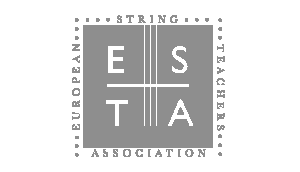Along Verbier’s main street, between the Arctic Juice Bar, Burton and The North Face, hitched above the télécabine or off the subterranean parking garage of the hotel Montpelier, are a series of almost secret venues into which young people disappear with odd-shaped boxes on their backs. These people are the young musicians of the Verbier Academy, the crème de la crème, and they are gathering for masterclasses, rehearsals and coaching sessions. In a festival committed to their well-being, the classes offered in these spaces are not just in violin and piano but range from Shakespearian acting, sports psychology and tax consultancy, and I have been invited to be the resident mindfulness coach.
I start on the Tuesday before the official festival launch with an Introduction to Mindfulness consisting of four sessions: Mindfulness of body, breath, thoughts and feelings. As we form a circle on the first day, I invite each person to say what has brought them here. The usual symptoms of anxiety pop up - sweaty palms, bow shakes and numbness, the language of unworthiness and imposter syndrome, disconnection. Feelings such as fear, embarrassment and shame are spoken of, but also, and most importantly, love; how much we all love the music and how much we want to communicate to our fellow human beings. As the soft underbelly of brilliance is gently exposed over the next five days, as muscles relax, breathing deepens and space is created in mind and body, it is this love that binds us.
In the first class we begin to sense into our bodies with care rather than bossing them around and scolding them. We explore how the breath moves the spine, how that can affect our posture - from open to closed, outer to inner, over-extension to slumping - and we ease into balance. As the week progresses, we count our thoughts and name them softly – judging, planning, analyzing, remembering – and we invite them to pass without judging ourselves for the judging. Shining the light of curiosity on our thinking mind, we notice that some thoughts support our art whilst others do not; that some, though they support our art in one moment, might jeopardize it in another, and that some, through dressed up as helpful, are in fact undermining. We dive into the river of feelings and observe as fear, if we allow rather than fight to ‘overcome’ it, changes constantly, morphing into excitement, care, a longing to connect, determination, into loneliness or sadness and back into care and longing. Each session ends in a meditation before the young artists scatter into their busy day.
The tradition in which I have trained is called ‘Insight’ or ‘Vipassana’ meditation, the roots of which are the ancient Buddhist practices of Sri Lanka and Southeast Asia. These practices were brought to the West in the 1960’s by, amongst others, my teacher, Jack Kornfield, and are secular. As a musician myself, I have found they lend themselves perfectly to the art of musical, or indeed any artistic practice and performance. Here in Verbier, indeed, they provide a rich soil in which to contemplate the questions that arise. Long complicated ones such as: Should we really be free from thinking (for example, thoughts such as ‘that difficult shift is coming up in two bars’ or ‘remember to relax your wrist’) when we are simultaneously trying to be in the flow, reach a top F, express Dvorak’s passion, stay calm, lift and put down a cascade of fingers, relax and express harmonic tension? Or short and intense: Will I ever be free from this terror? Others that come up are: What if I am going through a traumatic time in my personal life and I can’t stop crying through the music? Or: How do I practice non-interference when I am constantly striving to be better? The young musicians’ questions are intelligent, and they are also littered with the words should, shouldn’t, better, worse, good, bad, and success and failure. There are no slick answers, but shifts are made during the sessions and subsequent one-to-ones that are tangible and often audible: A phd student remembers to bring her body to the piano as well as her head and when she does, her mind ‘becomes spacious’; a violinist takes three seconds to breathe with the audience before she starts and her sound doubles; a pianist asks where she first heard the voice in her head ‘You are not good enough’, asks if it is true and opens to the possibility it might not be, and a cellist, considering that everyone in the audience might also have loved and lost, just like her, feels connected to her audience for the first time.
It is such a relief to lower the perfectionist mask that I often forget that I am in a room with tomorrow’s superstars. Perhaps even they forget it for a moment here and there. I can’t help wondering how much happier and healthier we would all be if we dropped the concept entirely.
One of the last sessions is held during the evening in the pretty wooden Chalet Orny. I am feeling particularly alive to beauty that day, having spent the afternoon trekking on the mountain trails, being touched by the piercing blue of gentian, the fragile architecture of edelweis, the vulnerability of mountain streams. As we shift the chairs from their lecture rows into our circle, I look out of the window at the sun setting over the massive strong shoulders of the Alps and it is hard to imagine such delicacy there now. It feels somehow appropriate that tonight we are focusing on what, in Buddhist philosophy, are called the ‘Four Divine Abodes’, the heart practices of kindness, compassion, shared joy and equanimity. The question I decide to plant at the beginning of the session is ‘How do we orientate our hearts when we practice, perform and teach?’
After some explanation of the practices and a little discussion, we move into the meditation. It is a loving kindness (‘metta’) meditation and consists of the repetition of phrases offering well wishes to ourselves and others. In traditional Buddhist meditation the practice starts with oneself but that can, in the West and particularly amongst hyper-critical musicians, be challenging, so I suggest we start with someone whom we find easy to love to open the heart. This can be a dear friend, a spiritual figure or even a pet. I explain that the traditional phrases - May you be happy. May you be healthy. May you live with ease - can feel glib at first, superficial or awkward, and invite the class to come up with their own words. I give the example of a phrase I came up with for myself at a particularly difficult time: ‘May I cease the war in my own heart’. What emerges are the following phrases. Spoken with such clarity, they almost shock me: May I accept myself as I am. May I be free from self-criticism. May I be kind to myself. May I be a vessel for the music. May I cease judging others. May I have the courage to be imperfect…
And just then, I remember the motto emblazoned across the walls of the Verbier International school I had seen that afternoon as I scrambled down from the mountain. The very same:
May I have the courage to be imperfect.
We end the meditation together saying silently ‘May all beings find peace. May there be peace on earth’. There is a hush in the room. Musicians from the Ukraine, Russia, the US and the UK, from Germany, Israel, France and China are lying down or sitting. Breath is calm and bodies still. It is hard to imagine them, as they move out of this space and onto a stage, deciding to abandon this peaceful state in favour of judgement, self-hatred, competitiveness, and anxiety.
It is the end of the session and, in the glow of our well wishes, I am reminded of Sharon Salzberg’s words, which I share with the group before we part:
To re-teach a thing its loveliness is the nature of Metta. Through loving-kindness, everyone and everything can flower again from within."
As we say goodnight, I feel moved by these musicians’ courage, and more certain than ever that, if we could only change the language of teaching to one of kindness, our future artists could quieten their relentless and often cruel inner critics who cause so much suffering. I bow to the Verbier Festival, and indeed other establishments that could easily get carried away with the glitz and glamour of their golden reputation but who, at their heart, are committing to treating the whole musician rather than just the talent. Like the brilliant flowers on the Alpine hills, ‘talent’ is only a tiny part of a musician’s eco-system which, like any living thing, needs care and attention. Thanks in part to the Verbier Festival, I am sure these musicians will grow strong and healthy and offer great beauty to the world.





